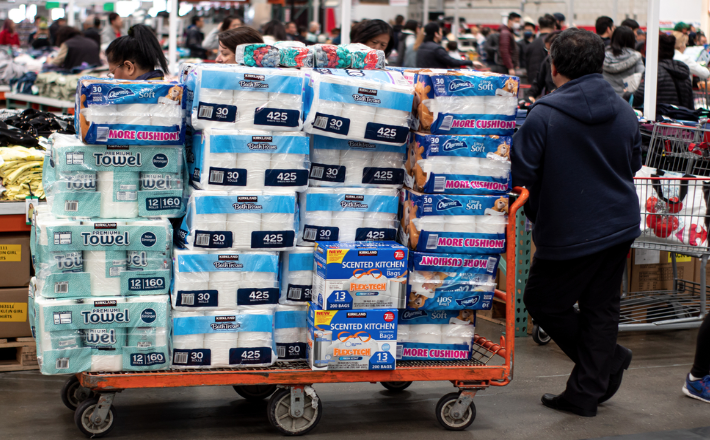CommentsVIRUS CRISIS--As Americans do everything they can to stay safe and limit their exposure to COVID-19, we are seeing more clearly the great divides in our society.
While the virus doesn’t discriminate, we are seeing that its impacts certainly do. In a pandemic, there’s a huge difference between having health care and not having it, between getting paid sick time off work and not, and having access to clean water and housing and lacking it.
Unfortunately, these needs aren’t being met for millions of people. And that failure is putting all of us at risk.
A relief bill passed by the House takes some small steps in this direction — it tries to make testing more affordable while expanding supports like food aid, for example — but it doesn’t take on the broad structural inequalities that are the root cause of our failure to stem the disease or cushion each other from its economic impacts.
To solve the crisis of the coronavirus, in short, is to begin solving the crisis of poverty.
For 140 million poor and low-income people, the choice between going to work when you or a loved one is sick or putting food on the table is not new. Neither is waiting to see if the over the counter generic medication will work, rather than risking the time and expense of an emergency room or urgent care visit. Figuring out if it’s better to pay your utility and water bills late or being late on rent is a monthly routine.
With the advent of the pandemic, more Americans are getting a taste of this fear.
For the first time, many more of us are directly confronting a crisis that’s limiting access to human needs like, food, clean water, housing, living wages, and health care. So we’re stocking up on groceries, medicines, diapers, and toilet paper, because we do not know for certain that our systems will take care of us.
This is not only a novel virus that we’re afraid of. It’s the fact that we’re all feeling a deep fear of the poverty that around 40 percent of Americans already live in or near full-time.
The good news is that, suddenly, many policy makers are taking these fears seriously.
Many cities and states are stopping evictions, tax foreclosures, and utility shut-offs to make sure people are housed and have access to water.
The House coronavirus response bill will provide more resources for nutrition programs and emergency food banks, and lift restrictions like work requirements for food stamps. It will also provide more resources for testing, including for the uninsured, and provides more resources to Indian Health Services. It extends unemployment insurance, too.
These are the right things to do. And they are demands that poor people have been making for years. The only problem is these measures are temporary. If poverty is the real pandemic, they should be permanent — and far more expansive.
COVID-19 has caused a new breakdown in the same old system. What’s new isn’t really the virus — it’s the realization that our system’s ongoing inequalities are more dangerous than many of us thought.
In a time of uncertainty, we must learn to care for each other, as we care for ourselves. Although we must now care for one another by practicing social distancing, we must remember the deep connectedness that unites us across all lines made to divide us.
This virus, like other struggles impacting so many of us, is revealing to us that we need each other more than we may have realized. When you lift from the bottom, everybody rises.
(Kait Ziegler is an anti-poverty organizer. This op-ed was provided CityWatch by OtherWords.)
-cw
















